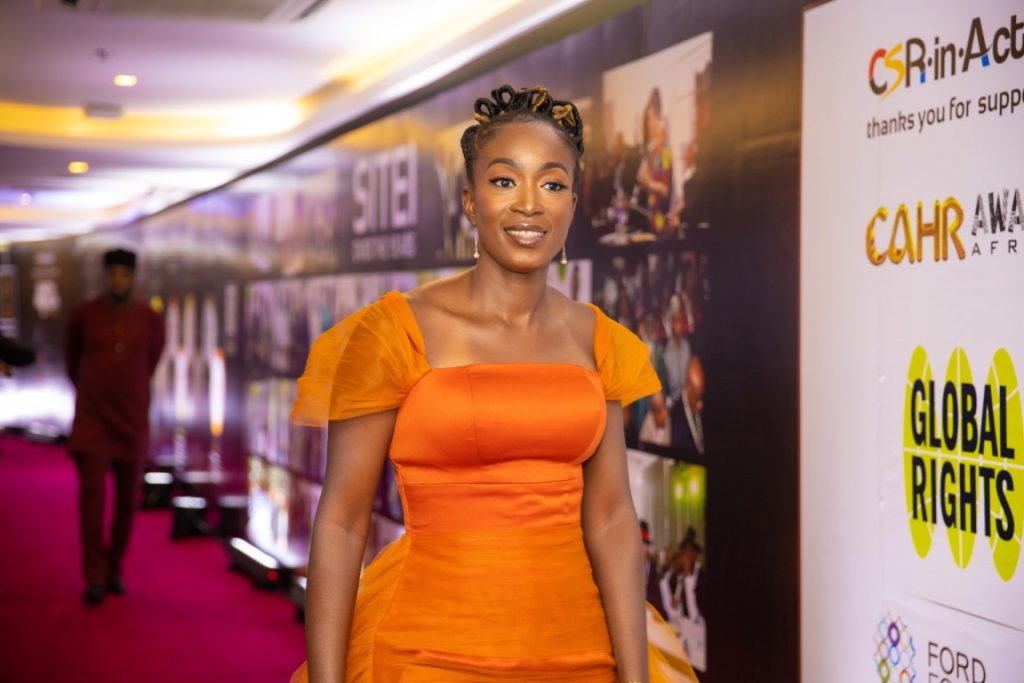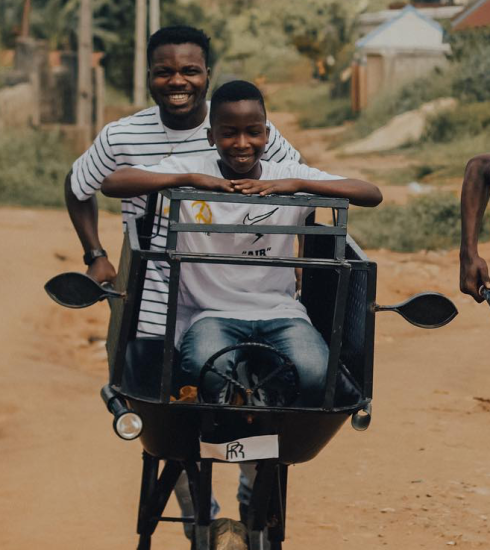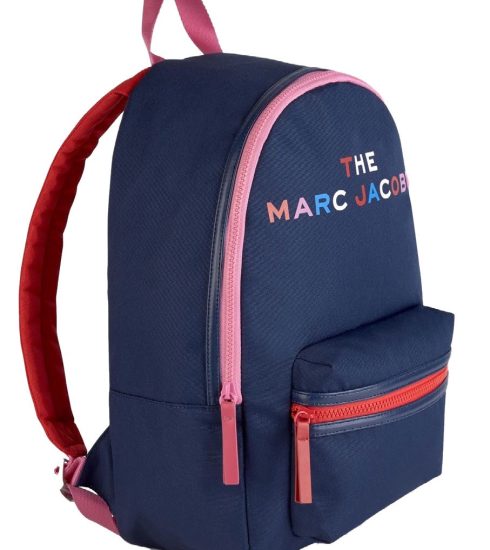In Conversation With Bekeme Masade-Olowola
If you are anywhere else in Nigeria but the Southern region, the conversations you’ll be having around oil and gas are either its pricing or its scarcity. For the people, especially women, living in the oil-producing regions, it is a completely different reality. Earlier this month, Earth Women—a poignant docudrama that explores the plight of women living in areas impacted by extractive activities, including oil and gas exploration and mining—premiered. It is the brainchild of Social Entrepreneur and Founder & Chief Executive of CSR-in-Action, Bekeme Masade-Olowola.
DOWNTOWN’s Kehindé Fagbule met with Bekeme after the screening of the overwhelmingly tragic and insightful short film documentary to talk about the career trajectory that has seen her strike an envious balance between serial entrepreneurship that saw her make her first million as a 20-year-old and activism that has positioned her as one of the biggest voices of the voiceless 20 years later.
Having gotten your first degree in English from the University of Lagos, you went to the UK to obtain an MSc in International Human Resource Management at the Queen Mary University of London, although you have once stated your love for journalism. How did you end up in mining and geosciences?
I am not exactly a mining and geosciences professional. I am not into mining or oil exploration and production, yet. I am a social entrepreneur and a sustainability expert. However, my work impacts on the operations of the mining and geosciences space. Sustainability is a big issue in this sector because of the adverse impact of oil and gas exploration and mining on the planet, which eventually impact on people living near the location of these activities. While I am not a mining and geosciences operator, my work as a service provider and researcher has brought me into the sector, and so I frequently work with prominent players in that space.
You’ve always been an entrepreneur. You made your first million at age 20 as an undergraduate. That’s a massive feat, how did you achieve that?
As you said, I have always been an entrepreneur, involved in business right from my primary school days when I would strike a deal with classmates in return for their torn out book sheets (to make more origami for sale) or my relative for coins. I was brought up in a family of strong women that were successful in enterprise and were as educated and aware as could be for their time, and so I had good examples to emulate; although I would say it’s in the blood.
By the time I was at university, I would take goods from older friends or buy clothes from the UK when I went on holiday, to sell to my peers.
Four months after graduating from Queen Mary, you went into The Apprentice Africa house. Tell us about the period of your life as a reality TV star, one of 18 contestants.
The Apprentice Africa is a pioneer business/career reality show in Nigeria, and it is a pity that it was discontinued. It was a wonderful experience for me, having the opportunity to network with very bright individuals from across Africa. I had no clue how to behave in a reality show – act up and be interesting just for the cameras and in fact avoided one-on-one camera sessions – and as soon as I fell ill from diarrhoea, I was eliminated. But I vowed that I would be the most successful apprentice (laughs), and I would say that I am doing just fine on that promise.
You secured a job with Bank PHB, the sponsor of the show at the end of the show. Must have felt like a win for you. How did that happen? Did you apply for the job while in the house or were you simply offered? If it’s the latter, why?
We all were offered positions at the conclusion of the show – some took it, others chose not to. You could, however, negotiate your pay and grade with HR. I think taking on the role was the best move for me at the time, seeing as I was technically an orphan, having lost my mum in 2016.
You tell such an important but untold story in your documentary, Earth Women. When was the first time you knew that this was a story you had to tell?
11 years ago, just a few years after I founded CSR-in-Action, my adventure into the world of stakeholders in the extractive sector began with our first Sustainability in the Extractive Industries (SITEI) conference when the Deputy High Commission of Canada approaches us to say that they wanted us to organise a webinar on a related topic. The unique initiative brings together different critical stakeholders to discuss and chart more sustainable pathways for resolving the various issues affecting the extractive industries sector in Nigeria.
Over the years, SITEI became a strong platform for fostering fiscal and social justice for communities with oil and gas and mining resources. Some of the achievements of SITEI include increased discussions on ‘local content’, transparency and accountability, the direct impact relating to the development of CSR and sustainability awareness and the provision of guidance for over 4,692 professionals and future leaders. We have also been able to popularise the embedding of CSR and sustainability through community engagement in the business strategies of businesses – and it was during this process of developing this tool that we realised that we couldn’t get a representative number of women in the room to deliberate.
We realised that there are individuals who are very personally affected by these challenges, but whose voices are not heard – women! Beginning in 2020, SITEI then had an offshoot called the SITEI-Woman project, a series of initiatives targeted at empowering women, especially those impacted by the extractive industries in Nigeria. We began to address issues like lack of inclusion and gender-based violence in extractive communities.
But, then, we would have conferences, meetings, workshops and the likes, but would have no audio-visual material to reinforce the thrust of our narrative, which started to become a problem that needed solving; and we solved it.
The documentary is a tragic one as it narrates the ills meted out against women and children in Nigeria’s oil regions. How are people able to watch it since its premiere? Where is it showing?
Earth Women is a dream come true. Let me point out, though, that it does not feature only women in oil regions, but also in mining areas. We held the premiere, which is the first screening on 3rd April 2022, with several decision-makers from entertainment, business, the media and the international community in attendance. It was also screened at the Royal Cocoa Film Festival at Silverbird Galleria on 9 April 2022, where it won the best short film documentary.
There are other planned screenings, including at the Gaia Africa Film Club – The Haven, in May 2022, and a private screening for professionals by one of the executive producers and Nollywood legend, Ego Boyo.
CSR-in-Action produced the pioneer sustainability investment report in Nigeria –The Corporate Sustainable Investor Report– in March 2012. Tell us what this is about.
The Corporate Sustainable Investor Report (CSIR) is a 9-year-old multi-stakeholder developed report – led by the CSR-in-Action Advocacy technical team – that researches and discloses the sustainability activities of companies in Nigeria. It is designed to be a one-stop-shop for summarised information on companies’ practices in environmental, social and governance activities that impact bottom line in the immediate or long term. It is the first of its kind in Nigeria and the sub-Saharan Africa region, which takes into primary cognisance, the local business milieu in Nigeria and Africa at large.

Bekeme Masade-Olowola
The CSIR aims to showcase social accountability practices and the impact of companies in Nigeria as displayed in their workplace policies, community development projects and management of the environment.
The CSIR was launched at the 17th Nigerian Economic Summit in 2011. It encourages participation in and accurate reporting of sustainability practices by organisations in Nigeria through peer-based performance rankings. It has been endorsed by several key players in the extractive sector, including the Ministry of Trade and Investment. The CSIR is a compelling resource for investors, business managers, academia and students.
You run the leading Corporate Social Responsibility (CSR) and Sustainability firm in the country, CSR-in-Action. In addition to that, you are also on the board of several organisations and in leadership positions. In layman’s terms, tell us what you do.
I am a sustainability expert and a social entrepreneur. What that means is that my team and I at CSR-in-Action Consulting help businesses incorporate responsible practices within their operations to cover environmental, social, community and governance matter issues in order that they excel for a long time through pre-empting and avoiding negativity. I carry out my work mainly through my organisation, CSR-in-Action, and we are renowned because of our holistic approach to sustainability embedment via consulting, advocacy and training. We are an 11-year-old independent company whose teams work globally with enterprises to research and develop insights into building environmental, social and governance capacity, aligning company business objectives with community values and preparing communities for complex change.
A key focus for us is sustainability reporting – having introduced the Global Reporting Initiative (GRI) to Nigeria in 2011, environmental auditing – and the extractive industries; helping all parties in the ecosystem excel.
Through CSR-in-Action Advocacy, we are also one of the leading voices for social justice in communities – covering women, youth, environmental management, and human rights. We nudge companies, government entities and leaders at various levels to become more responsible and accountable to the common man.
I am also a communications expert, and a partner in Zenera Consulting, a boutique and specialised brand management firm and together, we launched Ethica360o, to offer carefully crafted and exhaustive plans, which incorporate both internal and external communication, to help firms achieve strategic alignment with all relevant stakeholder groups and their desired goals.
The CSR-in-Action College of Sustainable Citizenship has trained over 200 business professionals and over 400 non-profit professionals from the leading organisations in-country. We have branches in Nigeria and Canada.
What does a typical day in your life look like?
Hmm. I am first a mother of four and a wife before being a social advocate and entrepreneur, in that order. My personal and professional lives just blend around each other in order for me to handle it all. A typical day usually begins with getting my last two ready for school – all my kids are home-schooled through primary school – and then as we prepare for work, my husband and I go over important household and professional plans for the day. I’m very involved in and intentional about every aspect of my life and apply the same organisational skills at work and at home, making lists and scheduling everything for efficiency.
I’m a very private person so most of my day is spent on strategy, behind-the-scenes, and then we have meetings with clients or partners – mostly virtual these days – and brainstorming sessions, as necessary. Every Monday morning, right after reading and responding to my urgent emails, I hold a meeting with my team where we brief one another on task updates and scope new tasks. The meeting usually metamorphosises into an extensive brainstorming session in which we analyse current projects and agree strategies to deploy in providing solutions for our clients. At the end of the session, everyone leaves with their deliverables.
All through the day, I’m constantly juggling, and I derive great pleasure in solving problems as they occur; it comes naturally to me.
Every Friday, I go to host our radio show on Inspiration FM, The Good Citizen, sponsored by Act Foundation, and other days of the week may be devoted to some of our other signature events – like our recently premiered documentary, Earth Women – and on trainings which we organise.
I usually try to return home in time to tuck my kids in, and sometimes I am able to go back home to check on them during the course of the day. Whatever, the case, my cameras at home are on 24-7 and I’m available by free calls, which I prioritise.
You have four beautiful children who all claim to be your muse and inspiration. Tell us about them.
I have three beautiful girls and a handsome boy. Right from the outset, my husband and I decided that our children would not be limited by their environment, or anybody’s perception of them as long as they were guided by their moral conscience; and home-schooling has helped them retain that confidence in themselves and to avoid negative influences. So, we are bringing them up to also be change agents in the society and we continue to help them explore their talents and excel at them.
When you are not busy saving the world one project at a time, how do you relax?
That’s a million-dollar question! While we are trying to excel at what we do, a work-life balance is also needed to prevent breakdown; even though it’s personally very hard for me to relax. I am very happy staying home and watching the latest documentary on Netflix – I enjoy trying to understand human behaviour – and playing Monopoly with the kids, but I do go out sometimes, mostly to business gatherings, which most people will regard as work, or alumni meetings. I am active in my church, The Elevation Church, where I am in the Prison Ministry, as serving God and people gives me joy; a legacy bequeathed to me by my dear mother, Josephine Nkemdilim, for whom our CAHR Awards was named after. I also play tennis, which I find refreshing and empowering at the same time, and sometimes, golf.
Self-identifies as a middle child between millennials and the gen Z, began writing as a 14 year-old. Born and raised in Lagos where he would go on to obtain a degree in the University of Lagos, he mainly draws inspiration from societal issues and the ills within. His "live and let live" mantra shapes his thought process as he writes about lifestyle from a place of empathy and emotional intelligence. When he is not writing, he is very invested in football and sociopolitical commentary on social media.






